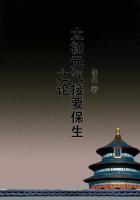Adjoining the ancient palace of Westminster, where King Henry IVwas then holding his court, was a no less ancient stone buildingknown as the Painted Room. Upon the walls were depicted a seriesof battle scenes in long bands reaching around this room, oneabove another. Some of these pictures had been painted as farback as the days of Henry III, others had been added since histime. They chronicled the various wars of the King of England,and it was from them that the little hall took its name of thePainted Room.
This ancient wing, or offshoot, of the main buildings was moreretired from the hurly-burly of outer life than other parts ofthe palace, and thither the sick King was very fond of retiringfrom the business of State, which ever rested more and moreheavily upon his shoulders, sometimes to squander in quietness aspare hour or two; sometimes to idle over a favorite book;sometimes to play a game of chess with a favorite courtier. Thecold painted walls had been hung with tapestry, and its floor hadbeen spread with arras carpet. These and the cushioned couchesand chairs that stood around gave its gloomy antiquity an air ofcomfort--an air even of luxury.
It was to this favorite retreat of the King's that Myles wasbrought that morning with his father to face the great Earl ofAlban.
In the anteroom the little party of Princes and nobles whoescorted the father and son had held a brief consultation. Thenthe others had entered, leaving Myles and his blind father incharge of Lord Lumley and two knights of the court, Sir ReginaldHallowell and Sir Piers Averell.
Myles, as he stood patiently waiting, with his father's armresting in his, could hear the muffled sound of voices frombeyond the arras. Among others, he recognized the well-rememberedtones of the King. He fancied that he heard his own namementioned more than once, and then the sound of talking ceased.
The next moment the arras was drawn aside, and the Earl enteredthe antechamber again.
"All is ready, cousin," said he to Lord Falworth, in a suppressedvoice. "Essex hath done as he promised, and Alban is within therenow." Then, turning to Myles, speaking in the same low voice, andbetraying more agitation than Myles had thought it possible forhim to show, "Sir Myles," said he, "remember all that hath beentold thee. Thou knowest what thou hast to say and do." Then,without further word, he took Lord Falworth by the hand, and ledthe way into the room, Myles following close behind.
The King half sat, half inclined, upon a cushioned seat close towhich stood the two Princes. There were some dozen otherspresent, mostly priests and noblemen of high quality whoclustered in a group at a little distance. Myles knew most ofthem at a glance having seen them come and go at Scotland Yard.
But among them all, he singled out only one--the Earl of Alban.
He had not seen that face since he was a little child eight yearsold, but now that he beheld it again, it fitted instantly andvividly into the remembrance of the time of that terrible sceneat Falworth Castle, when he had beheld the then Lord Brookhurststanding above the dead body of Sir John Dale, with the bloodymace clinched in his hand. There were the same heavy black brows,sinister and gloomy, the same hooked nose, the same swarthycheeks. He even remembered the deep dent in the forehead, wherethe brows met in perpetual frown. So it was that upon that facehis looks centred and rested.
The Earl of Alban had just been speaking to some Lord who stoodbeside him, and a half-smile still hung about the corners of hislips. At first, as he looked up at the entrance of the newcomers,there was no other expression; then suddenly came a flash ofrecognition, a look of wide-eyed amazement; then the blood leftthe cheeks and the lips, and the face grew very pale. No doubt hesaw at a flash that some great danger overhung him in this suddencoming of his old enemy, for he was as keen and as astute apolitician as he was a famous warrior. At least he knew that theeyes of most of those present were fixed keenly and searchinglyupon him. After the first start of recognition, his left hand,hanging at his side, gradually closed around the scabbard of hissword, clutching it in a vice-like grip.
Meantime the Earl of Mackworth had led the blind Lord to theKing, where both kneeled.
"Why, how now, my Lord?" said the King. "Methought it was ouryoung Paladin whom we knighted at Devlen that was to bepresented, and here thou bringest this old man. A blind man, ha!
What is the meaning of this?"














